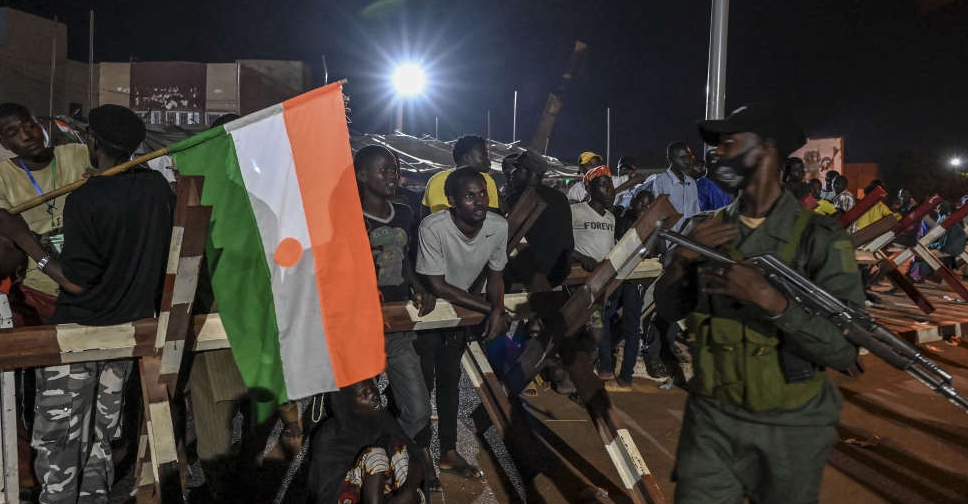
Niger's junta has accused France of deploying troops in several West African countries as part of preparations for a possible military intervention together with the regional bloc ECOWAS in Niger.
In a communique read on state television overnight, the junta also repeated its call for the departure of French troops from its territory - a major source of tension between the one-time allies since the July 26 ousting of president Mohamed Bazoum.
The statement appealed to "national and international opinion to witness the consequences of this aggressive, underhanded and contemptuous attitude adopted by France."
Relations between Niger and its former coloniser France have soured since Paris declared the junta illegitimate. Amid a wave of anti-French sentiment, the coup's leaders have also followed the strategy of juntas in neighbouring Mali and Burkina Faso in seeking to end long-standing military ties with France in the regionwide fight against insurgencies.
Asked about the junta's latest comments, French President Emmanuel Macron said "we do not recognise any legitimacy in the statements of the putschists."
Regarding the some 1,500 French troops stationed in Niger, Macron said any decision about their deployment would only be made in coordination with Bazoum.
He did not directly address the allegation that France was deploying troops elsewhere in West Africa as part of a regional proposal to use force as a last resort to restore democracy.
The main regional bloc ECOWAS has slapped sanctions on Niger and activated a so-called standby force for the possible military intervention, although talks are ongoing to find a diplomatic solution.
Nigeria's President Bola Tinubu, who holds ECOWAS' revolving chairmanship, has suggested that a nine-month transition back to civilian rule could satisfy regional powers. Niger's junta has previously proposed a three-year timeline.

 UK inquiry finds 'chilling' cover-up of infected blood scandal
UK inquiry finds 'chilling' cover-up of infected blood scandal
 Iranian President Raisi killed in helicopter accident, state media says
Iranian President Raisi killed in helicopter accident, state media says
 ICC prosecutor seeks arrest warrants for Israeli, Hamas leaders
ICC prosecutor seeks arrest warrants for Israeli, Hamas leaders
 Assange given permission to appeal against US extradition
Assange given permission to appeal against US extradition
 Israel intends to broaden Rafah sweep, Defence Minister tells US
Israel intends to broaden Rafah sweep, Defence Minister tells US




